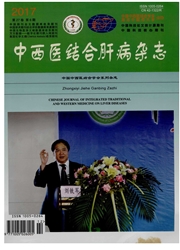

 中文摘要:
中文摘要:
BACKGROUND: Diabetes mellitus (DM) is regarded as a new risk factor for hepatocellular carcinoma (HCC), but few studies have focused on the potential role of DM in the progression of cirrhosis to HCC as well as in patients with simple HBV infection. METHODS: A cohort of 1028 patients, treated at our hospital and with a hospital discharge diagnosis of HCC and/or cirrhosis, was screened. Among them, 558 were diagnosed with chronic HBV infection and 370 were analyzed statistically according to the diagnostic, inclusion and exclusion criteria. The demographic, clinical, metabolic, virological, biochemical, radiological and pathological features were analyzed and the multivariate logistic regression model was used to determine the potential role of DM. RESULTS: In 248 cirrhotic patients, 76 were diabetic and their mean duration of DM was 4.6 years. In 122 HCC patients with cirrhosis, 25 were diabetic and their mean duration of DM was 4.4 years. Univariate analysis showed that compared with cirrhotic patients, the HCC patients had a higher percentage in males (P=0.001), a lower percentage in DM patients (P=0.039), a higher percentage in cigarette smokers (P=0.005), a higher percentage in patients with AFP】400 ng/mL (P【0.001), higher values of white blood cells (P【0.001), hemoglobin (P【0.001) and platelet (P【0.001), increased levels of ALT (P【0.001) and GGT (P【0.001), higher total bilirubin (P=0.018) and albumin levels (P【0.001), and a lower international normalized ratio (P【0.001). Multivariate logistic regression analysis showed that DM was anindependent associated factor for HCC [odds ratio (OR)=0.376; 95% CI, 0.175-0.807; P=0.012]. Even after the HCC patients were restricted to those with decompensated cirrhosis and compared with decompensated cirrhotic patients, the similar result was observed (OR=0.192; 95% CI, 0.054-0.679; P=0.010). CONCLUSIONS: DM is an independent factor in the progression of cirrhosis to HCC, but the role may be contrary to our current viewpoint. To clarify the caus
 英文摘要:
英文摘要:
BACKGROUND: Diabetes mellitus (DM) is regarded as a new risk factor for hepatocellular carcinoma (HCC), but few studies have focused on the potential role of DM in the progression of cirrhosis to HCC as well as in patients with simple HBV infection. METHODS: A cohort of 1028 patients, treated at our hospital and with a hospital discharge diagnosis of HCC and/or cirrhosis, was screened. Among them, 558 were diagnosed with chronic HBV infection and 370 were analyzed statistically according to the diagnostic, inclusion and exclusion criteria. The demographic, clinical, metabolic, virological, biochemical, radiological and pathological features were analyzed and the multivariate logistic regression model was used to determine the potential role of DM. RESULTS: In 248 cirrhotic patients, 76 were diabetic and their mean duration of DM was 4.6 years. In 122 HCC patients with cirrhosis, 25 were diabetic and their mean duration of DM was 4.4 years. Univariate analysis showed that compared with cirrhotic patients, the HCC patients had a higher percentage in males (P=0.001), a lower percentage in DM patients (P=0.039), a higher percentage in cigarette smokers (P=0.005), a higher percentage in patients with AFP>400 ng/mL (P<0.001), higher values of white blood cells (P<0.001), hemoglobin (P<0.001) and platelet (P<0.001), increased levels of ALT (P<0.001) and GGT (P<0.001), higher total bilirubin (P=0.018) and albumin levels (P<0.001), and a lower international normalized ratio (P<0.001). Multivariate logistic regression analysis showed that DM was anindependent associated factor for HCC [odds ratio (OR)=0.376; 95% CI, 0.175-0.807; P=0.012]. Even after the HCC patients were restricted to those with decompensated cirrhosis and compared with decompensated cirrhotic patients, the similar result was observed (OR=0.192; 95% CI, 0.054-0.679; P=0.010). CONCLUSIONS: DM is an independent factor in the progression of cirrhosis to HCC, but the role may be contrary to our current viewpoint. To clarify the causa
 同期刊论文项目
同期刊论文项目
 同项目期刊论文
同项目期刊论文
 期刊信息
期刊信息
